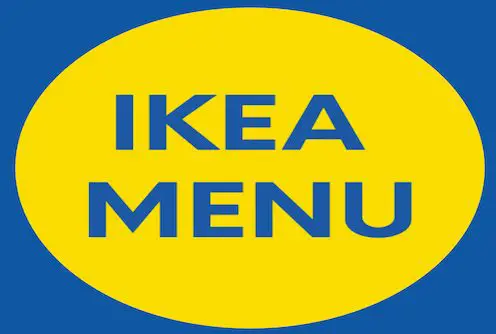In recent years, major retailers have begun responding to a growing demand for plant-based and vegan goods, a movement driven by health concerns, ethical values, and sustainability initiatives. Costco, one of the largest retail chains globally, has not been left behind in this shift. Its journey towards incorporating vegan products into its brand assortment has seen significant changes, catalyzed by various influences, challenges, and rewarding returns. This discourse will explore Costco’s evolutionary trajectory in its investment of vegan products, detailing the challenges faced, the factors driving their decisions, and the impact of this initiative on both the company and the consumers.
Evolution of Costco’s Vegan Products
Increased Demand for Plant-Based Products
The growing trend towards plant-based diets, primarily due to health, environmental, and ethical concerns, resulted in a surge in the demand for vegan alternatives globally. Reflecting this trend, Costco, one of the largest wholesale retailers in the United States, began to increase its vegan product lineup over the years, responding to this shift in consumer behavior.
The Beginning of the Journey
Costco’s journey into veganism began subtly, incorporating plant-based alternatives into their existing product list. This move was more of a strategic decision in response to the increased demand for vegan goods. They started to source and supply products like quinoa, brown rice, organic vegetables, and wide range of plant-based milks, which quickly gained popularity among Costco members.
The Rise of Vegan Alternatives at Costco
Eventually, the products offered expanded beyond just grocery items to cater to a wider market of consumers seeking vegan alternatives. These products constituted a wide variety ranging from plant-based protein bars and dairy-free cheeses to vegan burgers and sausages. Costco further expanded its range by introducing vegan options in their bakery and ready-meals sections, implying an overall move from merely accommodating veganism to actively promoting plant-based diets.
Vegan Brands Partnering with Costco
Over the years, Costco has built partnerships with multiple vegan brands to enhance their vegan offerings. Brands like Beyond Meat, a major player in the plant-based meat industry, and Just Egg, a company offering vegan egg alternatives, have collaborated with Costco to bring their products to a wider audience. By teaming up with recognized plant-based brands, Costco made high-quality, innovative vegan options more accessible to its shoppers.
Introduction of Kirkland Signature Plant-Based Items
To solidify their position in the vegan market, Costco went beyond stocking products from other brands and introduced its own line of plant-based items under their private label, Kirkland Signature. The addition of Kirkland Signature almond milk and veggie burgers among other vegan goods, allowed Costco to provide consumers with more cost-effective options while maintaining high-quality standards.
Propelling Towards a Vegan Future
Costco’s commitment to pioneering the expansion in vegan products is evident as they continuously adapt to meet the climbing demand. This aligns with the growing global trend towards plant-based diets, which continues to gain momentum. Costco currently offers an assortment of vegan options, curating selections from various partnering brands as well as creating their own under a private label. Considering the current trajectory, it’s safe to anticipate that Costco will persist in driving innovation and diversity in their vegan offering to maintain their prominent role in this booming market.

Influences and Challenges in Costco’s Vegan Journey
Catalysts Propel Costco Towards the Vegan Movement
Several influences sparked Costco’s march towards offering a more bountiful vegan selection. A significant contributor has been the shift in societal attitudes and buyer preferences leaning towards plant-based diets. Fueled by increasing insight into the health and environmental benefits veganism provides, its popularity has surged over the past decade. Shoppers are frequently choosing plant-based alternatives for reasons that range from health benefits to ethical considerations. Recognizing this upward trend and growing demand for vegan options, Costco has undertaken the initiative to enhance its product range to cater to this burgeoning trend.
Further propelling this transition is the escalating attention to wellness trends. With direct ties between diet and health, interest in plant-based diets has blossomed due to connections with reduced risks of obesity, heart diseases, cancer, and diabetes. Costco’s expansion into carrying a more extensive vegan line integrates seamlessly with this wellness movement, underscoring their dedication to promoting wellbeing through healthier dietary options for their consumers.
Costco’s Vegan Journey: Facing the Challenges
Undertaking a shift in its product spectrum, Costco is making strides towards offering a more comprehensive range of vegan options, but the journey is not without its hurdles. Sourcing is the first challenge as it is crucial that each vegan product is procured from manufacturers who strictly adhere to vegan principles throughout production. This necessitates an extensive review of the product supply chains to confirm the absence of animal products or by-products, ensuring a truly plant-based selection.
The second roadblock is pricing. Due to the intricate processes involved in growing, processing, and transporting plant-based ingredients, vegan products can be costlier when compared to non-vegan alternatives. The certification needed to brand a product ‘vegan’ also contributes to the higher price. Striking a balance between affordability and profitability adds to Costco’s challenge here.
The third obstacle lies in the promotion and sale of vegan products. Communicating the perks of a plant-based diet to sceptical potential consumers is a crucial part of Costco’s vegan trajectory. Though veganism is gaining momentum, Costco’s customer category still broadly consists of traditional meat-eaters and flexitarians. Therefore, maintaining a healthy balance in stock to cater to these various dietary preferences is key.
Nevertheless, Costco’s ongoing dedication is evident, navigating these challenges to broaden and elevate its vegan offerings, tuning into the growing consumer demand and wider societal shift towards a healthier, sustainable dietary lifestyle.

Impact and Reception of Costco’s Vegan Initiative
Costco’s Pledge to Adding More Vegan Options
A global giant renowned for a vast array of bulk goods, Costco has pivoted in recent years towards integrating more vegan and plant-based alternatives into its portfolio. Intent on serving the varied needs of a diverse clientele, Costco has revitalized its food courts and freezer corridors with a plethora of plant-based alternatives. This transformation began with recognition of escalating customer demand for vegan products. As a result, Costco has made it a mission to align its product and service offerings with these evolving consumer preferences.
Sales Performance of Costco’s Vegan Products
Costco’s decision to stock more plant-based goods has been not only ethically motivated but financially rewarding as well. As veganism and flexitarian diets become more popular, sales of plant-based alternatives at Costco have also been increasing. According to some insights shared by the company, the new additions have registered high sales volumes, demonstrating an increasing appetite for plant-based options among the customers. Vegan burgers and dairy-free milk alternatives tend to be top performers, replicating trends seen nationally.
Customer Feedback and Perceptions
The customer feedback on Costco’s vegan initiative has been overwhelmingly positive. Many customers appreciate the increased access to plant-based options, which were previously hard to find in bulk quantities. Social media platforms are filled with posts of satisfied customers sharing their vegan finds at Costco. This has also driven higher customer engagement with the brand as customers feel more catered to and understood.
Notwithstanding the positive feedback, there have been a few criticisms as well, mainly pertaining to product offerings. Some customers feel that there could be more diversity in plant-based product options. However, overall, the reception to Costco’s vegan offerings has been positive.
Influence on Costco’s Brand Image
Costco’s foray into the vegan market has influenced and strengthened its brand image in multiple ways. While it continues to serve the needs of its diverse customer base, the multinational wholesaler has also positioned itself as a socially responsible corporation by acknowledging the global push towards healthier and more ecologically responsible eating habits. By offering more vegan products, Costco demonstrates its commitment to preserving the environment and reducing its carbon footprint, given that plant-based diet adoption is a significant factor in mitigating climate change.
In the eyes of the customers, this not only shows Costco’s sensitivity to trends but also aligns them with the values of an increasing segment of conscientious consumers. Thus, the vegan initiative only adds to the attractiveness of the Costco brand, making it a preferred choice for vegan and environmentally conscious customers.
Shaping Future Business Strategies
In response to the positive feedback and robust sales performance of its plant-based offerings, Costco is slated to roll out more such products in coming times. This move underscores its dedication towards meeting customer needs and emphasizes the company’s strategy of maintaining an edge in the highly competitive retail industry.
The company’s ability to shift its inventory in line with the changing dietary habits of its customers is a major factor propelling the company’s expansion. As interest in veganism and plant-based alternatives continues to soar, Costco’s endeavor will also be to keep the shelves filled with products that cater to this growing demand, continuously adapting to satisfy a diverse customer base.

Looking Ahead: The Future of Vegan Products at Costco
Expanding the Array of Plant-Based Alternatives
Costco has already carved out a niche for itself in the plant-based sphere by offering a gamut of vegan food products, from tofu and almond milk to vegan burgers. However, as we look forward, it appears that the company is set on further bolstering its commitment to vegan and plant-based offerings.
New Vegan Products On The Horizon
Speculation runs high regarding the precise vegan product offerings Costco might explore in the coming years. As per industry trends and consumers’ evolving preferences, it is likely that Costco could expand into plant-based meats, non-dairy milk alternatives, and perhaps vegan cheeses. The current popularity of these products suggests a robust market for them.
Newer products within the vegan industry such as vegan seafood and plant-based eggs could be additional frontiers for Costco. The company could also invest in various suppliers producing these specialty items.
Influence of Health and Sustainability Trends
Several current trends may influence Costco’s vegan journey in the coming years. Interest in plant-based diets continues to grow, as does concern over the environmental impact of animal agriculture. The convergence of ecological consciousness and health awareness could henceforth play a significant role in shaping Costco’s vegan and plant-based product offerings.
Expansion of Vegan Private-Label Products
Costco’s private-label brand, Kirkland Signature, has already dabbled in vegan and plant-based products, such as almond milk and quinoa. It could be speculated that the expansion of Kirkland’s vegan range can be the company’s next step in growing its plant-based product offer. Increasing the selection of these products could successfully appeal to a broader customer base and cater to growing demand.
Focus on Affordability and Accessibility
Costco’s primary business model focuses on affordability and bulk buying, which could become a significant factor in its vegan journey. The company can work towards making plant-based diets more affordable and accessible to a broader population, by offering a wide variety of high-quality, plant-based goods at competitive prices.
Collaboration with Innovative Brands
Costco is known for teaming up with innovative brands, such as the partnerships they have created with Beyond Meat and Morningstar Farms. In the future, Costco could expand its network of plant-based partnerships, investing in and providing a platform for smaller vegan brands to reach a larger audience.
In conclusion, Costco’s future trajectory in the plant-based space appears promising. Driven by market trends and consumer demand, the company is well-positioned to continue innovating in the area of vegan and plant-based products.

Looking into the not-so-distant future, Costco’s outward shift towards integrating more plant-based products into their portfolio seems bright. The increasing consumer appetite for healthier, more sustainable options coupled with consistent innovation in the plant-based sector suggests a lucrative path for the retail giant. Given that trends such as wellness, sustainability, and plant-based dining are showing no signs of slowing down, it is arguable that we will continue to see more vegan alternatives on Costco’s shelves. The company’s commitment to bolstering its vegan offerings has already had a significant influence on its brand image, and will likely continue to impact its business model in the future, creating a new, greener path for the warehouse club industry.


